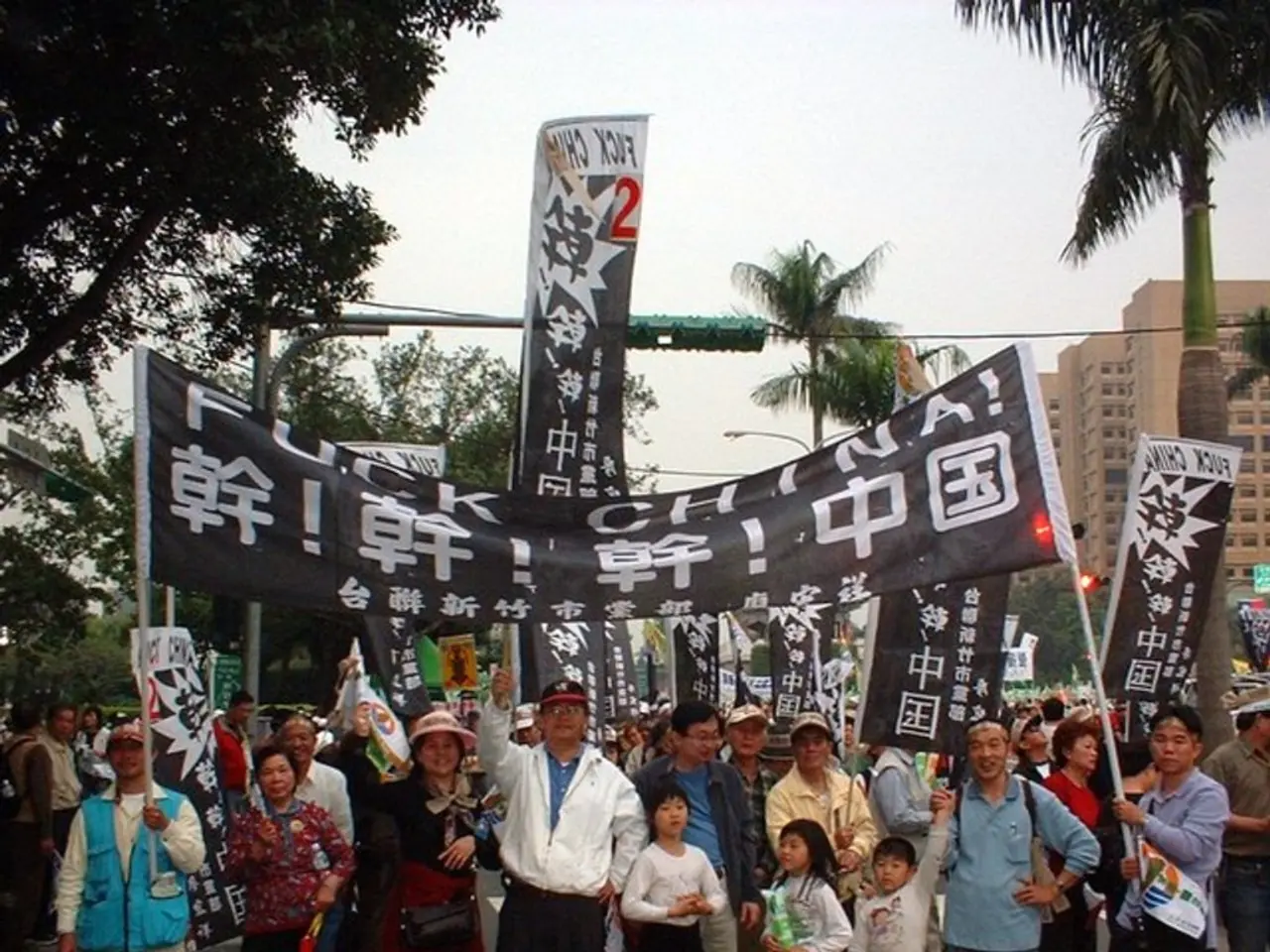Multitudes demonstrate against ZF's planned workforce reductions - Multitudes demonstrate against job terminations at ZF factories
ZF Friedrichshafen Faces Mass Job Cuts and Protests amid Automotive Market Challenges
German automotive supplier ZF Friedrichshafen is embarking on a significant cost-cutting programme, aiming to reduce its workforce by up to 14,000 jobs in Germany by the end of 2028, accounting for about 25% of its German workforce [1][4]. This decision comes in response to declining global car production, weak demand, and high costs associated with the electric vehicle transition [1].
The job cuts and restructuring have sparked strong employee pushback, culminating in a large-scale labor demonstration at ZF facilities across Germany on July 29, 2025. Over 4,000 participants took part in the protest, with around 6,000 people participating at the headquarters in Friedrichshafen on Lake Constance, and around 4,500 people demonstrating at the other locations, including Saarbrücken and Schweinfurt [3].
The city of Schweinfurt, home to around 8,500 ZF employees, saw hundreds of employees from companies like Schaeffler, Bosch Rexroth, and SKF joining the demonstration [5]. The workers are expressing their displeasure at planned further cuts, with up to 14,000 jobs threatened at ZF Friedrichshafen [1][4].
In addition to the job cuts, ZF is considering selling parts of its business such as the airbag and seat belt manufacturing division and its technology development division for electric drives [2]. This move is aimed at focusing on core activities while reducing costs amid a challenging automotive market environment.
The economic crisis is a major factor in the protests, according to IG Metall [6]. The company announced further reductions at works meetings about two weeks ago [1]. Last year, ZF recorded a loss of over one billion euros [7]. Employees are being asked to forgo money, and dismissals are no longer ruled out.
The potential impacts on employees include significant job losses, increased uncertainty and unrest, and possible changes in working conditions and morale due to restructuring pressures and asset sales [2]. These measures indicate a difficult period ahead for ZF’s workforce as the company adapts to market pressures and aims to maintain financial stability.
All attempts to rescue the company with the help of consulting firm McKinsey have been unsuccessful [8]. ZF is facing missing orders from manufacturers and high costs for the transition to electric motors. The company offers products such as automatic and manual transmissions, steering systems, drives, or brakes [3].
The protests pose risks of operational slowdowns and local disruptions at key sites. As the situation unfolds, it remains to be seen how ZF will navigate these challenges and maintain its position in the competitive automotive industry.
References: 1. ZF plans 14,000 job cuts in Germany by 2028 2. ZF to sell airbag and seat belt manufacturing division 3. Thousands of ZF employees protest against job cuts 4. ZF to cut up to 14,000 jobs in Germany by 2028 5. Hundreds of employees from other companies join ZF protest in Schweinfurt 6. Economic crisis a major factor in ZF protests, says IG Metall 7. ZF records loss of over one billion euros in 2024 8. All attempts to rescue ZF with the help of McKinsey have been unsuccessful
Despite the economic challenges and the ongoing market transition towards electric vehicles, the Commission has also adopted a proposal for a Directive on the protection of workers from the risks related to exposure to ionizing radiation in the context of the automotive industry [9]. This measure is aimed at mitigating the potential health risks faced by workers in the industry, including those at ZF Friedrichshafen.
Given the planned job cuts and asset sales at ZF, many companies in the finance sector may be impacted due to their investments in the automotive industry, potentially affecting the overall business environment.

![Autonomous Tesla Vehicles Demonstrated Navigating London's City Streets on Camera [VIDEO]](/en/content/images/size/w1280/format/webp/20250731155939_tesla-s-full-self-driving-system.jpeg)


